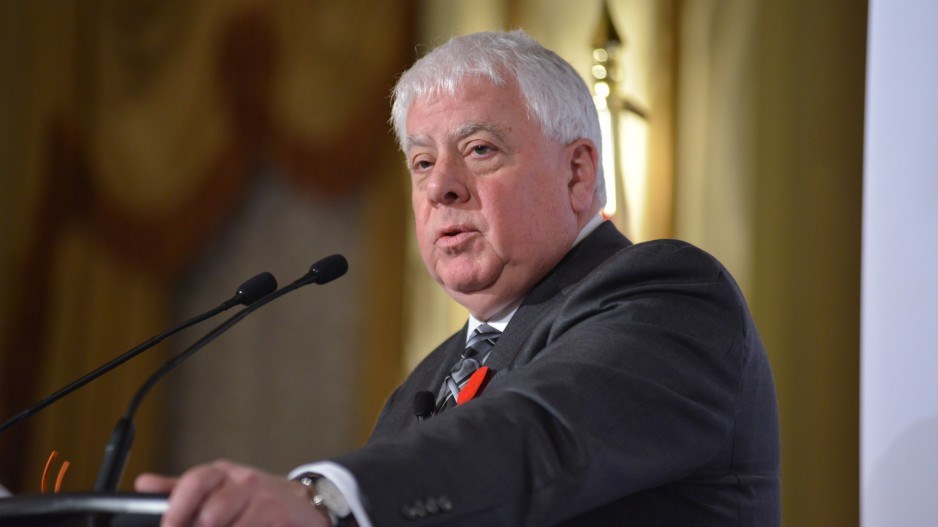A new publicly traded company created to build the $7.4 billion Trans Mountain pipeline expansion debuted on the Toronto Stock Exchange May 30, one day after the BC NDP and Green parties announced a minority government alliance with the stated goal of killing the project.
Kinder Morgan Canada Ltd. (TSX:KML) set its initial public offering price for restricted shares at $17 per share, but failed to hit that target. Shares in the new company were trading closer to $16 per share in midday trading.
The company used the IPO to raise $1.7 billion to help finance the pipeline’s expansion. Last week, Kinder Morgan announced it had taken a final investment decision on the $7.4 billion project, despite the political climate in B.C. being “not ideal.”
“This securing of financing for the project demonstrates the need for and interest in the opportunity for Canada to have better access to world markets,” Kinder Morgan Canada CEO Ian Anderson said in a news release.
The company was under the gun to make an FID by the end of this month, since its agreement with 13 shippers that have allocations for new pipeline capacity on the expanded pipeline was contingent on the company taking an FID by then.
Kinder Morgan Canada’s parent company, Kinder Morgan Inc. (NYSE: KMI), owns 70% of the new Canadian company.
Kinder Morgan reiterated its plan to begin construction in September this year, despite the fact it is still fine-tuning some of the pipeline’s route.
The project has already received federal and provincial environmental certificates, but will still require a number of permits from the provincial government – a provincial government that is suddenly quite hostile to the project.
It also still faces 19 court challenges from First Nations and environmental groups.
On Monday, in announcing a four-year agreement that will see the Green Party work with the NDP to establish a minority NDP government, Green Party Leader Andrew Weaver said the NDP’s opposition to the project was one of the considerations in his party’s decision to align with the NDP.
In response to the NDP-Green alliance, Prime Minister Justin Trudeau reiterated that the project is deemed to be in the national interest. Pipelines are a federal jurisdiction, although provincial governments can put up roadblocks.
As one of the five conditions for supporting the project, Kinder Morgan agreed to a revenue sharing agreement that would see B.C. receive $25 million to $50 million annually.
Whether that agreement will hold up with a provincial government that is now committed to stopping the project remains to be seen.
The funding was contingent on the provincial government supporting the project. Under an NDP minority government, the company will no longer have that support.
“I suspect that revenue sharing deal with Kinder Morgan is the least of the alliance’s concerns at the moment,” said George Hoberg, a professor at the Liu Institute for Global Issues at the University of BC. “There are much bigger political and financial stakes for the province if the B.C. government reverses its position and withdraws support for Trans Mountain.
“The B.C. government is probably not in a legal position to stop the pipeline over the long run. But it can, through jurisdiction it does control, delay the pipeline and create additional uncertainty for investors.”




